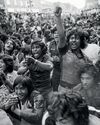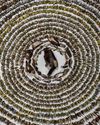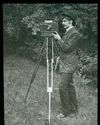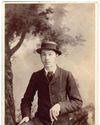
How would you go about defining the full spectrum of 21st-century human civilisation in photographs? That was the question that world-renowned photography curator William A Ewing asked himself back in 2010. Such an exhibition would need to be epic in scale - like Edward Steichen's seminal Family of Man exhibition which toured the world in the 1950s and was seen by nine million people. It would be very expensive to stage and would need the support of major museums and galleries around the globe in order to be a success. Fortunately, Ewing managed to make all of these things happen. The resulting exhibition, Civilization: The Way We Live Now, comprises over 350 images by some of the world's leading photographers, and is one of the most astonishing, thought-provoking and visually spectacular displays of photography you are ever likely to see.
'The exhibition is an attempt to step back and think about this planetary-wide civilisation we have created, ever more globalised, ever more homogenised,' explains Ewing. 'First of all it's about a planetary civilisation, something we all share. Secondly, it's collective. We forget in this time where we worship individuality, and the cult of celebrity, that most of our human achievements are collective in nature. We don't build iPhones at home in our basements, we don't build our own cars, planes and submarines, we don't build skyscrapers individually. It's a collective effort. Thirdly, civilisation is cumulative: every generation adds its own onion skin layer.'
The task of staging an exhibition on this scale is a daunting prospect that few curators in the world would have the experience and ability to pull off but Ewing, who could almost be described as an anthropologist who works through the medium of photography, was confident of its potential from the beginning.
This story is from the {{IssueName}} edition of {{MagazineName}}.
Start your 7-day Magzter GOLD free trial to access thousands of curated premium stories, and 9,000+ magazines and newspapers.
Already a subscriber ? Sign In
This story is from the {{IssueName}} edition of {{MagazineName}}.
Start your 7-day Magzter GOLD free trial to access thousands of curated premium stories, and 9,000+ magazines and newspapers.
Already a subscriber? Sign In

Calling The Shots: A Queer History of Photography
Offering an unprecedented view of photographic history through a queer lens, this is a wonderful and powerful book, says

Large-aperture standard zoom, too
SONY has also revealed a new premium standard zoom, the FE 28-70mm F2 GM.

Super-fast, high-res Sony Alpha Ai II
SONY has announced its new professional full-frame flagship camera, the Alpha A1 II.

39 awesome accessories
Our round-up of the best accessories we've used and reviewed this year, along with some old favourites. There's something here for every budget, starting from just £7, including tripods, bags, filters and much more

Such a thing as society
This autumn sees the launch of a major new book and exhibition devoted to examining the multiplicities of photography during 1980s Britain. Peter Dench finds out more

Join Club
The sociable Canvey Island Photographic Club is keen to grow its in-person meet ups

Capturing flight
Winners and finalists of Bird Photographer of the Year share their tips for success with Hollie Latham Hucker

140 years of change
AP has become the world’s oldest surviving consumer photo magazine because we have moved with the times, says Nigel Atherton

Preserving history in platinum
A deep dive into the meticulous art of platinum printing, and the collaboration between the Royal Geographical Society and Salto Ulbeek. Mike Crawford explores how they brought historical photographs to life with enduring beauty and precision

Life in the past lane
What was life like for an amateur photographer in 1884? John Wade takes a trip back in time